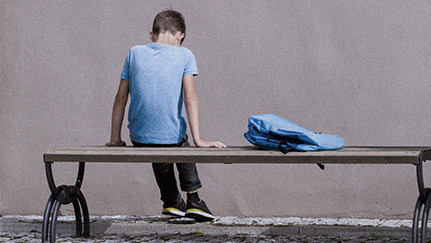
Via Canva Pro
I was 16 when Governor Jan Brewer signed Senate Bill 1070 in 2010. I remember the fear in our communities. I remember the silence in neighborhoods, the way people stopped gathering at the park, the way families disappeared overnight. I remember the protests, the heartbreak, and the resilience. Arizona became a national symbol of racial profiling and anti-immigrant policy.
Now, 15 years later, the Supreme Court has reopened that wound.
Last week, the Court lifted restrictions on federal immigration agents, allowing them to resume “roving patrols” — sweeping operations that permit stops based on appearance, language, or location. The ruling, which temporarily overturns a lower court’s decision, echoes the darkest chapters of Arizona’s immigration history. It’s déjà vu for those of us who lived through SB 1070.
The decision permits agents to detain individuals outside places like Home Depot, car washes, and bus stops — simply for speaking Spanish or appearing to seek day labor. Justice Sonia Sotomayor, in her powerful dissent, warned that this ruling “poses a threat not just to undocumented foreigners but to Americans of Hispanic descent.” She’s right. That threat is not theoretical. It’s personal. It’s the fear of being stopped while buying groceries. It’s the anxiety of walking your child to school. It’s the trauma of being treated like a suspect in your own home.
Arizona Attorney General Kris Mayes has rightly stated that the 9th Circuit’s ruling, which blocked these tactics, remains binding in our state. But legal nuance doesn’t always translate to lived experience. When federal agents are empowered to act on stereotypes, immigrants and people of color suffer — regardless of citizenship status. We’ve lived it.
And the stakes are high. Arizona is home to over 1 million immigrants, making up 13.2% of the state’s population. Immigrants contribute to every sector of our economy — from agriculture and construction to education and healthcare.
Nearly 192,896 U.S. citizen children in Arizona live with an undocumented parent. We are your neighbors, your classmates, your coworkers. When enforcement policies target us, entire communities are harmed.
SB 1070 left scars on everyone. It led to widespread fear, family separations, and a chilling effect on civic participation. It took years of organizing, litigation, and advocacy to push back against these efforts. And now, we must do it again.
This ruling is a test — not just of our legal system, but also of our moral compass. Will Arizona repeat its mistakes, or will we lead with compassion and courage?
If this ruling unsettles you, don’t stay silent. Call your representatives. Demand that Arizona uphold protections against racial profiling. Support local immigrant rights organizations. Show up at city council meetings. Share your story. Speak out when you see injustice.
Arizona is more than its past. We are a place of resilience, of diversity, of people who refuse to be silenced. We know this story too well. And this time, we won’t just fight back. We’ll lead forward.
About the Author
Belén Sisa is a DACA recipient, community advocate, and Arizona resident who writes from personal experience on issues of immigration, equity, and justice. She is passionate about building a state where all people are treated with dignity, regardless of immigration status.
What We’re Reading
Karen Attiah’s Firing: Julio Ricardo Varela, who founded this newsletter, penned his latest for Pressing Issues about the firing of Karen Attiah from the Washington Post. In this piece, he calls for an independent media ecosystem that uplifts the tenets of a multiracial and multiethnic democracy.
The Latino Newsletter welcomes opinion pieces in English and/or Spanish from community voices. Submission guidelines are here. The views expressed by outside opinion contributors do not necessarily reflect the editorial views of this outlet or its employees.




